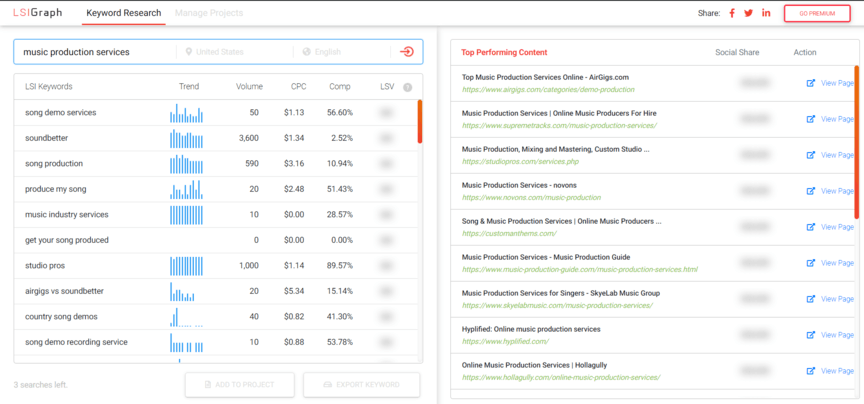Unlock the secret to maximizing your website’s SEO potential with this comprehensive guide on the optimal number of keywords.

Image courtesy of via DALL-E 3
Table of Contents
Welcome to the world of blogging! Today, we’re going to talk about a very important aspect of creating a successful blog post – SEO keywords. But wait, what are those? SEO keywords are like magic words that help search engines find your blog posts when people are looking for information. So, let’s dive into why using the right number of SEO keywords is crucial for the success of your blog!
Picture this: You have written a fantastic blog post, poured your heart and soul into it, but no one seems to be reading it. That’s where SEO keywords come into play. By using the right keywords in your blog post, you can help your content show up in search engine results when someone is looking for information on a topic you’ve written about. It’s like a secret code that helps your blog get noticed in the vast sea of the internet.
Understanding Keywords
What Are Keywords?
Keywords are specific words or phrases that people type into search engines like Google when they are looking for information. These words are crucial because they help search engines understand what your blog post is about and when to show it to people searching for similar topics.
Main vs. Related Keywords
Main keywords are the primary words or phrases that directly reflect the main topic of your blog post. On the other hand, related keywords are variations or closely related terms that also connect to your main topic but may be used less frequently. It’s essential to include both main and related keywords to enhance the visibility of your content to a wider audience.
How to Choose Keywords
When selecting keywords for your blog post, think about what words or phrases your target audience is likely to search for. Consider using tools like Google Keyword Planner to research popular keywords relevant to your topic. Aim for keywords that accurately describe your content and match what users are searching for.
Why Use the Right Number of Keywords?
Keyword density refers to how many times a keyword is used in a piece of content compared to the total word count. It’s essential to strike a balance when using keywords in your blog posts. If you use too few keywords, search engines may not understand what your content is about. On the other hand, if you use too many keywords, it can come across as spammy and harm your SEO efforts.
Search Rankings
The number of keywords you use can directly impact your search engine rankings. When you use relevant keywords in your content, it helps search engines understand the topic of your blog post. This, in turn, can improve your chances of ranking higher in search results when someone searches for those keywords.
Blog Traffic
Using the right number of keywords can also affect the amount of traffic your blog receives. When you optimize your content with the appropriate keywords, it increases the likelihood of your blog post showing up in search results. As a result, more people are likely to click on your post and visit your blog, increasing your overall blog traffic.
How Many Keywords Should You Use?
When it comes to using keywords in your blog posts, it’s essential to strike a balance. As a general rule of thumb, aim to include your main keyword in the title, meta description, and throughout the content. However, overloading your content with too many keywords can make it sound unnatural and hurt the readability. For optimal results, focus on using your main keyword 2-3 times for every 100 words.

Image courtesy of www.webfx.com via Google Images
Content Length
The ideal keyword count can also vary depending on the length of your content. For shorter blog posts or articles, using your main keyword a few times can be sufficient to optimize for search engines. In contrast, longer pieces of content may allow for a higher keyword count without sounding repetitive.
SEO Strategy
Your SEO strategy can also influence the number of keywords you should use. If you are targeting a highly competitive keyword, you may need to include it more frequently to improve your chances of ranking. On the other hand, focusing on long-tail keywords allows for a more natural integration into your content while still attracting relevant traffic.
Finding the Best Keywords
When it comes to creating a successful blog post, one key element to consider is choosing the right keywords. Keywords help search engines like Google understand what your content is about, making it easier for people to find your blog. But how do you find the best keywords to use? Let’s explore some tools and methods that can help you in this process.
Keyword Tools
There are several tools available to assist you in finding the best keywords for your blog post. Tools like SEMrush, Ahrefs, and Ubersuggest can help you identify relevant keywords that have high search volumes and low competition. These tools provide valuable insights into what words and phrases people are searching for, allowing you to tailor your content to meet their needs.
Using Google Keyword Planner
Google Keyword Planner is another excellent tool that you can use to conduct keyword research. This tool allows you to see the average monthly searches for specific keywords, as well as the level of competition for each term. By using Google Keyword Planner, you can gain valuable insights into which keywords are most relevant to your blog post and have the potential to drive more traffic to your site.
Best Practices for Using Keywords
When using keywords in your blog post, it’s important to place them strategically. Make sure to include your main keyword in the title, headers, and the first paragraph of your content. Additionally, sprinkle related keywords throughout the body of your post to show search engines the relevance of your content.

Image courtesy of www.marketingillumination.com via Google Images
Title Tags and Meta Descriptions
Title tags and meta descriptions play a crucial role in SEO. Incorporate your main keyword in the title tag to improve your post’s visibility in search results. Craft a compelling meta description that includes relevant keywords to entice users to click on your link.
Content Naturally
While it’s essential to include keywords in your content, it’s equally important to do so naturally. Avoid forcing keywords into your sentences; instead, focus on creating high-quality, engaging content that naturally incorporates your chosen keywords. This approach not only enhances the readability of your post but also boosts its SEO performance.
Common Mistakes to Avoid
Keyword stuffing is the practice of excessively repeating keywords in a blog post in an attempt to manipulate search engine rankings. It not only makes your content awkward and unreadable but can also lead to penalties from search engines. Remember, using keywords naturally and strategically is key to a successful SEO strategy.
Irrelevant Keywords
Using keywords that are unrelated to your content is a common mistake that can negatively impact your SEO efforts. Ensure that the keywords you use are relevant to the topic of your blog post to attract the right audience. Irrelevant keywords can mislead readers and harm your credibility.
Overuse
Overusing keywords in your blog post can have a detrimental effect on both readability and SEO ranking. Instead of focusing on cramming as many keywords as possible into your content, prioritize creating valuable and engaging content that naturally incorporates keywords. Remember, quality content is key to a successful blog post.
Conclusion
In this article, we’ve explored the world of SEO keywords and their importance in helping search engines find your blog. By understanding the right number of keywords to use, you can enhance your blog’s visibility and reach a wider audience.

Image courtesy of www.ilfusion.com via Google Images
Remember, finding the balance between using the right number of keywords and providing valuable content is key to a successful SEO strategy. By following the guidelines outlined here, you can ensure that your blog is optimized for search engines while still engaging your readers.
So, whether you’re a seasoned blogger or just starting out, incorporating the right number of keywords into your content can make a significant difference in your blog’s success. Keep experimenting with different keyword strategies and watch your blog thrive!
Want to turn these SEO insights into real results? Seorocket is an all-in-one AI SEO solution that uses the power of AI to analyze your competition and craft high-ranking content.
Seorocket offers a suite of powerful tools, including a Keyword Researcher to find the most profitable keywords, an AI Writer to generate unique and Google-friendly content, and an Automatic Publisher to schedule and publish your content directly to your website. Plus, you’ll get real-time performance tracking so you can see exactly what’s working and make adjustments as needed.
Stop just reading about SEO – take action with Seorocket and skyrocket your search rankings today. Sign up for a free trial and see the difference Seorocket can make for your website!
Frequently Asked Questions (FAQs)
How do I choose keywords for my blog post?
Choosing the right keywords for your blog post is essential for helping search engines understand what your content is about. Start by thinking about what words or phrases people might use when searching for the topic you’re writing about. Consider using tools like Google Keyword Planner to find popular and relevant keywords related to your content. Make sure to select keywords that are not only commonly searched but also specifically relevant to the information you’re sharing in your post. By focusing on keywords that accurately reflect your content, you can increase the chances of reaching the right audience.
Can too many keywords hurt my blog?
While using keywords is important for SEO, using too many can actually have a negative impact on your blog. This practice, known as keyword stuffing, can make your content look spammy to both readers and search engines. Search engines may penalize your blog for overusing keywords, which can result in lower rankings and decreased visibility. Instead of cramming as many keywords as possible into your post, focus on using them naturally and strategically. By incorporating keywords in a way that enhances the quality and relevance of your content, you can avoid the pitfalls of keyword overload.
Where should I put keywords in my blog post?
Knowing where to place your keywords within your blog post is key to optimizing your content for search engines. Here are some strategic placements for your keywords:
- Title Tag: Include your main keyword in the title of your blog post to signal its relevance to search engines.
- Meta Description: Write a concise and informative meta description that includes your primary keyword.
- Headers: Use keywords in headers and subheadings to organize your content and help search engines understand the structure of your post.
- Throughout Content: Sprinkle your keywords naturally throughout the body of your post to indicate its subject matter without overdoing it.
By incorporating keywords in these key areas, you can optimize your blog post for search engines while maintaining a high-quality reading experience for your audience.







